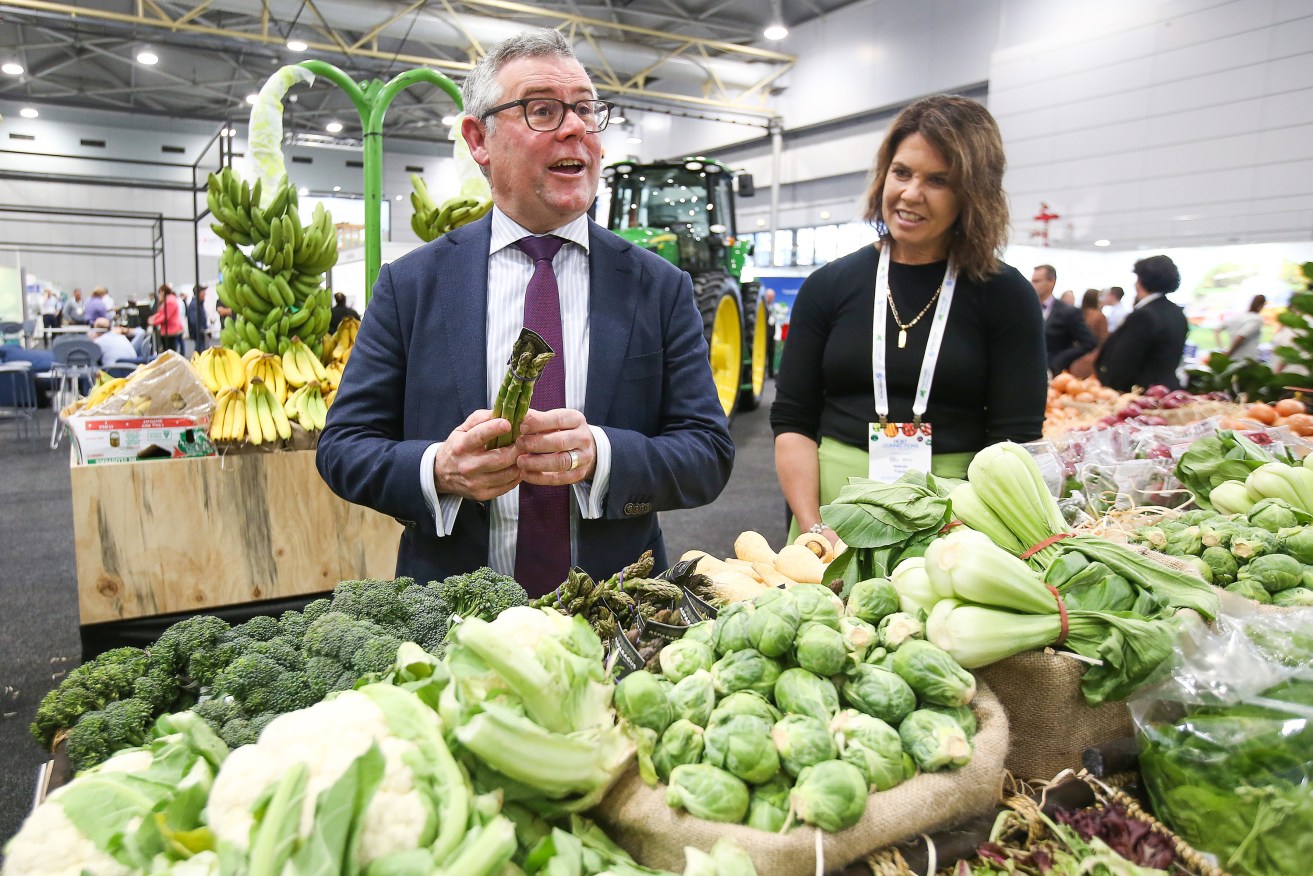How leaving the meat off your lasagne can help save the planet
Switching food and drink purchases can reduce greenhouse gas emissions from household groceries by up to 71 per cent, according to new research.

Murray Watt, Federal Minister for Agriculture, Fisheries and Forestry, has warned supermarkets against Christmas gouging. (AAP Image/Jono Searle)
Analysts calculated the projected emissions of more than 22,000 items bought by 7000 Australian households, in what the George Institute for Global Health described as “the most detailed analysis of the environmental impacts of Australia’s food purchasing patterns”.
The study found around 31 million tonnes of greenhouse gas emissions were the result of products consumed at home in 2019, with meat and meat products contributing to almost half of that.
“The greenhouse gas emissions attributable to grocery retail purchases in Australia could be greatly reduced by making switches from higher- to lower-emission products,” the paper found.
The research found consumers could decrease their carbon footprint by 71 per cent by swapping out a frozen meat lasagne for the vegetarian option.
Lead author and epidemiologist Dr Allison Gaines, who led the analysis over four years, said simple consumer changes can make a big difference.
“Food and beverage consumption patterns, particularly in higher-income countries like Australia, need to change significantly if we are to meet global emissions targets,” she said.
“Ingredients are really the core of what’s contributing to greenhouse gas emissions in the food and agriculture sector.”
But Dr Gaines said the research was limited by the information available across the products analysed.
“Brands are different, they give different information, there’s only a certain level of information that’s required,” she said.
The research also informed an app called ecoSwitch that consumers can use to choose packaged food with a lower environmental impact.
“People can, at the point of sale, find out comparative information about the greenhouse gas emissions of different food products,” Simone Pettigrew, program director of food policy at The George Institute, said.
She said Australia was taking too long to improve the sustainability of the food system, endangering the prospect of the country reaching its net zero by 2050 target.
“The app empowers consumers to make better choices, but the data underlying the app will enable more speedy, more effective choices by government and industry as well,” Ms Pettigrew said.
The app allows shoppers to scan a product barcode to check its ‘planetary health rating’.
The Institute plans to extend the ecoSwitch algorithm to integrate other environmental indicators such as land and water use, and biodiversity, and to introduce the tool to other countries.
The research was published in the scientific journal Nature Food.












